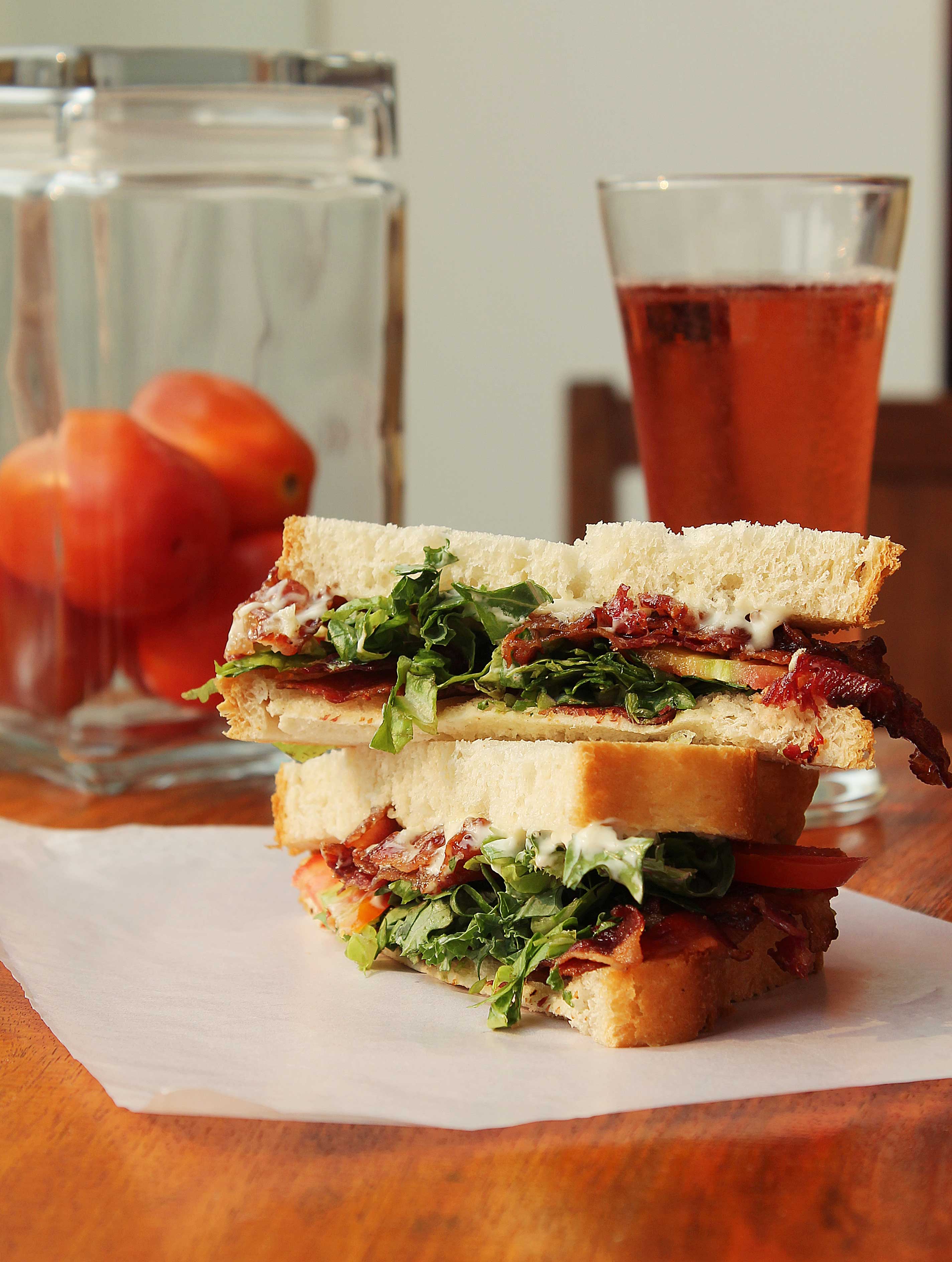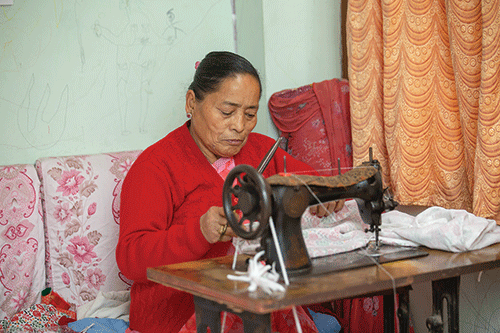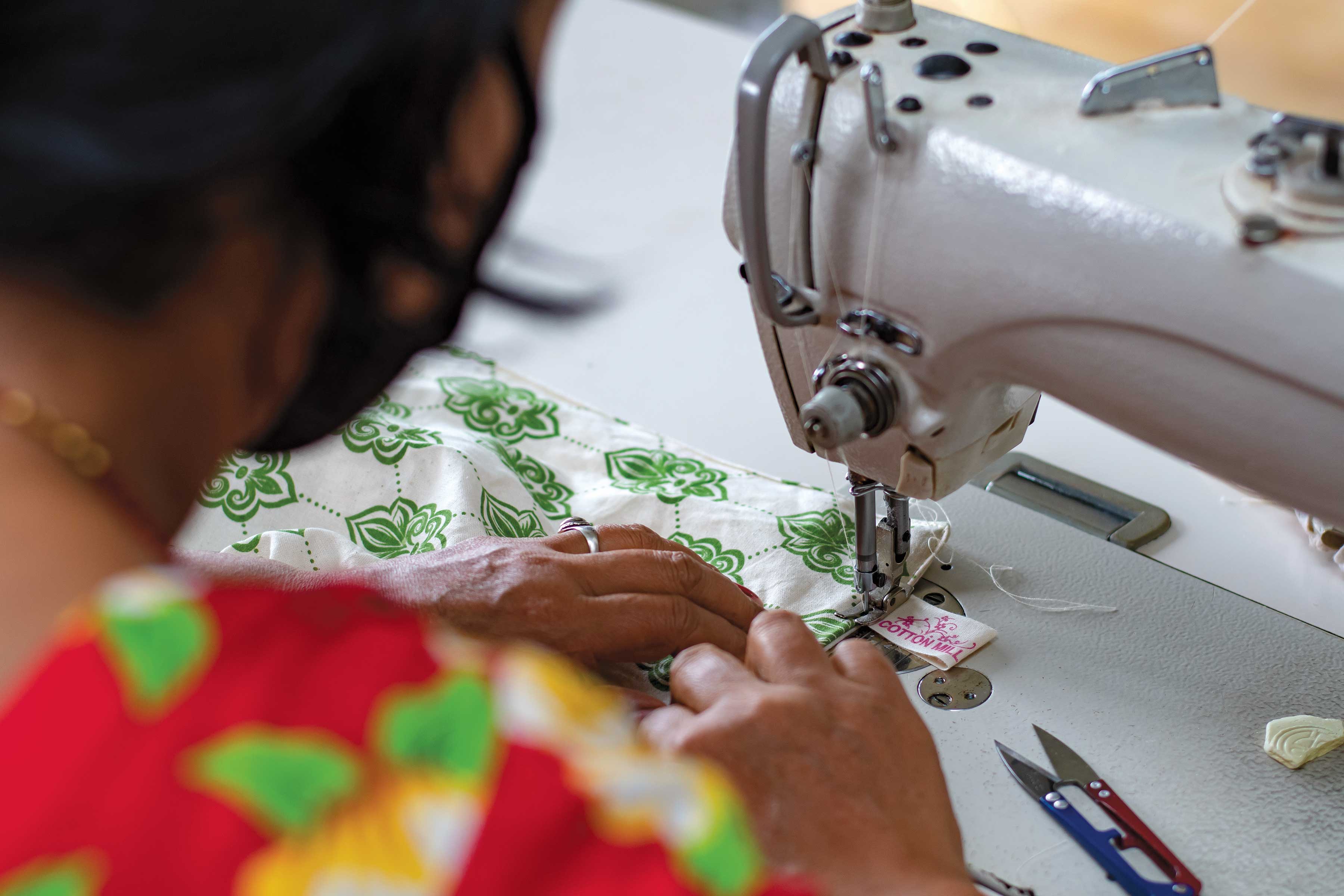Two sisters make an effort to create a culture change in the way we deal with waste paper.
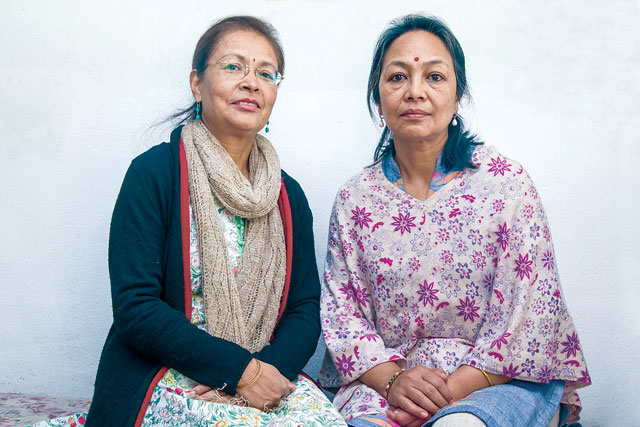
Jamarko’s large, open working area has a pleasant feel, somehow both relaxed and industrious at the same time. At a long table, a number of employees—most of them women—are working diligently to turn pieces of paper and cardboard into beautiful, functional items. It’s a pleasure to watch. After some time observing the workings of the place, I sit down with sisters Muna Shrestha and Aruna Lacoul, who together founded Jamarko 17 years ago, in the year 2000.
My first question: Why this, why paper?
Muna explains, “I used to volunteer at many NGOs, attending workshops, seminars, training programs, and so on. Lots of issues were raised about the environment, society, and pollution, and I got to thinking, why don’t we do something ourselves? Everyone needs to do something for society and the future of our children. What can we do to support the environment?” After asking herself these questions, and many more, she thought, “Why can’t we do paper recycling?” She had also considered plastic recycling, but the dearth of facilities, plus the high costs involved in doing so, did not make it a feasible option.
Muna recruited her sister, who had some experience with running a small business, and so Jamarko was born. The paper is made in Gokarna before being brought to the workspace here in Galkopakha, to be made into a wide variety of paper products: notebooks, file folders, visiting cards, calendars, greeting cards, and many more. The finished products are sold from their small showroom in Jhamsikhel, Lalitpur.
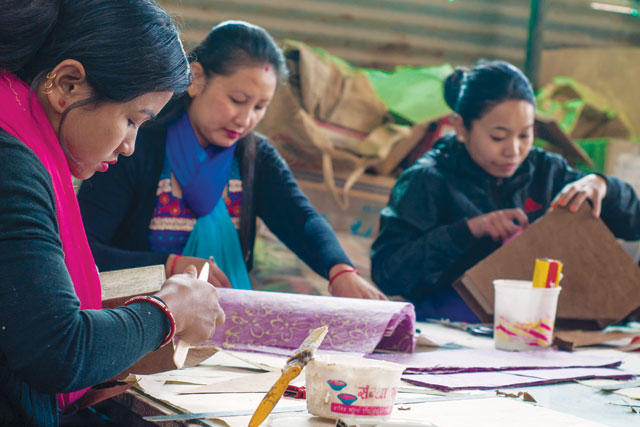
After a few years they also made the decision to add lokta products to their production line. “To sustain our recycling business, we started to also make items out of Nepali lokta paper—it’s stronger, and people also like it as it’s traditional.” They don’t make the lokta paper themselves, as they do with the recycled paper, but rather make some of their products using it. I love the colorful boxes and file holders; other popular items are the large, bamboo reinforced lamp shades. These beautiful spheres are not just for letting the light shine through, but beautiful works of art in themselves that would be an eye-catcher in any space.
I ask if employing mostly women was an intentional decision. “Yes, we decided at the beginning that we wanted to provide jobs for women, particularly those from marginalized communities, or who are underprivileged.” Some men are employed to help with the heavier work, too, and for a time they also attempted to give training and employment to former street children, though unfortunately,they did not end up staying on for very long. Among the female employees, some are illiterate, but others are still studying, something that they are given time from work to do. It’s part of the general ethos of the company, it seems, to attempt to make a difference, both with its products and for its employees.
Before long, our conversation returns to environmental concerns. The recycled paper angle of the business is what drew me to Jamarko, and I’m happy to see that it is clearly the part that the sisters are most passionate about. I ask if there is much concern in the country for environmental issues. “Not as much as there should be,” is the reply. “But it’s changing, especially among the younger generation. They care a lot.”
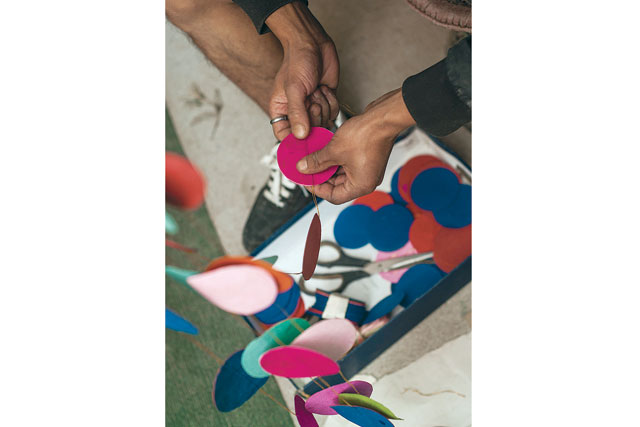
I had imagined there would be a large market for such a sustainable product, but there is still more of a preference in the market for new, machine made paper—some people apparently think the recycled paper looks too rough, and want something nice and shiny looking, with a glaze. It’s funny, because the rougher texture is what attracts me to their products; I think it looks so rustic and beautiful in its own unique way. Some INGOs have used their products for special seminars or programs, but it would be even better if we each chose to use recycled items on a daily basis, not just for talk programs or special seminars about the environment.
And, of course, purchasing recycled products is only part of the equation. The other important things are reducing our own unnecessary consumption, and recycling what we can. “The younger generation is really making a difference nowadays, they are very much interested in recycling and want to use environmentally friendly products. When they have the power to choose, they choose products like these. The younger generation is making a difference,” say Aruna and Muna. I admire their faith and optimism. I also feel that change will come from the country’s young people, but it’s not enough to just rely on that, or on what others are doing; care of the environment is the responsibility of every human being.
If you have waste paper—and don’t we all—perhaps you can make an effort of your own by dropping it off here! Office paper, old notebooks, shopping receipts, and even packaging from a tube of toothpaste or the (clean) box that breakfast cereal is stored in can all be given a new life by being transformed into something else, something new and useful. It will also give you the satisfaction of knowing that there’s a little less waste out there because of you.
To quote these inspirational sister-founders: “Everybody should do something. That is the main thing. That is why we started.”
Jamarko can be contacted at 01-4351050 (Workshop in Galkopakha, Thamel), 01-5529495 (Shop in Jhamsikhel, Lalitpur) or by email at jamarko@hotmail.com




